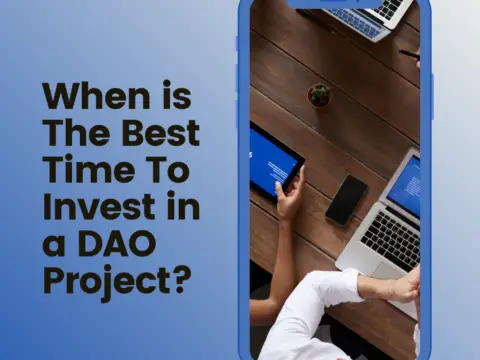Decentralized Autonomous Organizations (DAOs) present a unique avenue for individuals to participate in collective decision-making and resource allocation within a decentralized framework. To explore DAO opportunities effectively, it’s essential to navigate the diverse platforms and networks that host these decentralized entities. Here’s a guide on where to find DAO opportunities and engage with this transformative space.
1. Ethereum-Based DAOs:
- Hub of Decentralized Activity: Ethereum is a pioneering blockchain known for hosting a multitude of DAOs. Platforms like Aragon, DAOstack, and MolochDAO have gained prominence, providing a diverse range of DAO opportunities across industries.
2. Binance Smart Chain (BSC) DAOs:
- Expanding Ecosystem: Binance Smart Chain has witnessed a surge in DAO activities. Platforms like PancakeSwap and Venus are notable examples, offering DAO opportunities with lower transaction fees compared to Ethereum.
3. Polygon (formerly Matic) DAOs:
- Scaling on Layer 2: Polygon, a layer 2 scaling solution for Ethereum, hosts a growing number of DAOs. Leveraging the speed and cost efficiency of Polygon, DAOs like Aavegotchi and QuickSwap have emerged as prominent players.
4. Tezos DAOs:
- Blockchain Governance: Tezos is known for its on-chain governance capabilities, making it a hub for DAOs exploring decentralized decision-making. DAOs like QuipuSwap and Kalamint operate within the Tezos ecosystem.
5. DAO Platforms on Solana:
- Fast and Scalable DAOs: Solana’s high throughput and scalability have attracted DAO activities. Platforms like Solend and Mango Markets offer DAO opportunities with fast transaction processing on the Solana blockchain.
6. Harmony (ONE) DAOs:
- Cross-Chain Opportunities: Harmony is gaining traction for cross-chain collaboration. Platforms like ViperSwap and Swoop operate on Harmony, providing DAO opportunities with a focus on interoperability.
7. Avalanche-Based DAOs:
- Decentralized Collaboration: Avalanche, with its subnets and fast consensus, hosts DAOs that prioritize decentralized collaboration. DAOs like Pangolin and Benqi operate within the Avalanche ecosystem.
8. NEAR Protocol DAOs:
- Developer-Friendly Environment: NEAR Protocol provides a developer-friendly environment for DAOs. Platforms like Flux and Ref Finance offer opportunities for participation and governance within the NEAR ecosystem.
9. DAOs in the Polkadot Ecosystem:
- Interconnected Chains: Polkadot’s ecosystem features interoperability among various parachains, hosting DAOs like Moonbeam and Acala. Participants can explore DAO opportunities within the interconnected Polkadot network.
10. Cross-Chain DAO Platforms:
- Bridging Different Blockchains: Platforms such as DAOhaus aim to provide a framework for cross-chain DAOs. Participants can engage in DAO opportunities that bridge multiple blockchains and ecosystems.
11. Blockchain-Agnostic DAO Platforms:
- Flexibility Across Blockchains: Some platforms, like Colony and DAOstack, are designed to be blockchain-agnostic, allowing users to create and participate in DAOs across different blockchain networks.
12. Community Forums and Social Media:
- Discovering Emerging DAOs: Community forums like Discord, Telegram, and social media platforms are valuable for discovering emerging DAO opportunities. Engaging with blockchain communities can provide insights into new and upcoming DAO projects.
Conclusion: Embracing the DAO Ecosystem
Navigating the DAO landscape involves exploring a variety of blockchain platforms, each offering unique features and opportunities. Whether on Ethereum, Binance Smart Chain, Solana, or other ecosystems, participants can find DAOs aligned with their interests, values, and goals. As the DAO ecosystem continues to evolve, staying informed about emerging platforms and networks is key to actively participating in decentralized decision-making and shaping the future of DAO governance.



